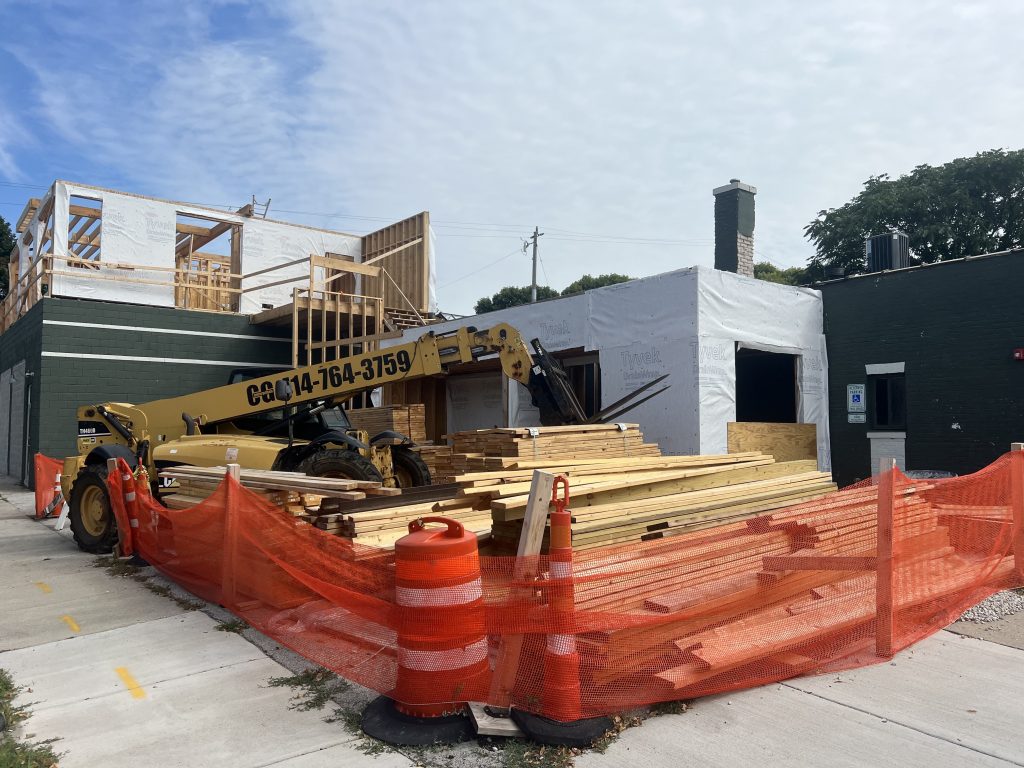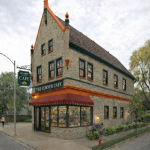First Key Vote On Zoning Overhaul Scheduled For Monday
Is Growing MKE good to go or dead on arrival? City Plan Commission gets first say.
It’s showtime for the Department of City Development‘s effort to overhaul the city’s zoning code and encourage citywide growth.
Since 2022, DCD has been developing its Growing MKE plan and hosting dozens of public meetings and listening sessions. Now, it’s time to see if there is political will to adopt the proposal.
The City Plan Commission will hold a special meeting on July 29 to review the proposal. It will make a recommendation to the Common Council, which has the final authority to approve the changes.
Dozens of letters and comments, in support and opposition, have already been filed in advance of Monday’s meeting.
The proposal would allow more housing types, such as live-work units and rear cottages (accessory dwelling units), to be developed throughout most of the city. It would also allow more areas to host three and four-unit buildings, a type of housing commonly called “missing middle,” and provide incentives to develop higher-density housing on transit routes.
It also has components, based on lot width and other factors, designed to restrict large or wide new buildings from being developed in historic lower-density residential areas. The net result is an attempt to drive the highest-density new development to commercial areas or existing high-density areas while allowing only incremental changes in density on residential side streets.
The proposal is designed to support Mayor Cavalier Johnson‘s vision of growing the city to one million residents, an addition of more than 400,000 people, and is part of a nationwide movement to update zoning regulations to accommodate growth, prevent displacement and accommodate changing household sizes. A 2023 report from the Wisconsin Policy Forum found that falling household sizes are driving demand for different housing types, with the number of one-bedroom households in Milwaukee outnumbering the number of one-bedroom homes.
A draft of the plan was first released in April. A July 15 memo says, based on feedback, a number of elements have been changed.
Most notably, a proposal to allow small multi-family buildings to be built citywide has been stripped. The proposal has been modified to only allow the buildings to be constructed on corner lots, major streets, or commercial corridors, while the memo acknowledges that many such buildings already exist in one and two-family neighborhoods throughout the city. The proposed modification has drawn opposition by some, who view it as watering down the proposal., otherwise in support of the plan.
“A possible compromise could allow a +1 or +2 unit incremental increase over what is already on properties in those districts. Without incremental growth, a resulting mismatch of housing supply to housing demand raises the cost of housing throughout the city. Gradual, incremental growth is a great and fair principle for existing and potential residents,” wrote John December in suggesting a compromise.
People deserve to live in a multi-family home on a quiet street – we shouldn’t condemn this type of housing to busy roads and thoroughfares. Let’s allow people to build useful homes. The default should be to allow people to do things, unless there’s a very clear reason not to,” wrote Sam Engsberg.
Letters of support were submitted by 1000 Friends of Wisconsin, AARP Wisconsin, the Community Development Alliance, Community Advocates, Greater Milwaukee Association of REALTORS®, IndependenceFirst, Milwaukee County Transit System, Metropolitan Milwaukee Fair Housing Council, Milwaukee Habitat for Humanity, Near West Side Partners, the Pedestrian and Bicycle Advisory Committee, Take Root Milwaukee, United Community Center, Urban Economic Development Association of Wisconsin. A number of the letters hit on three repeated points: reducing housing costs, addressing residential segregation and improving public health outcomes.
Many of the letters or “eComments” in opposition ask for a delay and also used a form letter approach.
“As a Milwaukee resident deeply invested in the future of our community, I strongly urge the CPC to consider delaying the vote on this plan to prioritize more community outreach and engagement. It is crucial that all voices, especially those from marginalized and underrepresented groups, have the opportunity to be heard and contribute to the decision-making process. By taking additional time to foster inclusive dialogue and understanding, we can ensure that the plan reflects the diverse needs and aspirations of our entire community. Thank you for your consideration,” says the message submitted by several people. The messages asking for the delay were primarily submitted by individuals affiliated with or residing in the Metcalfe Park and Midtown neighborhoods.
“I urge the Community [sic] Planning Commission to delay the vote on the Growing MKE plan until a more robust and inclusive engagement process can be conducted,” wrote Midtown Neighborhood Alliance President Betty Glosson in asking for a delay and more targeted outreach.
An additional letter, signed by a number of Midtown residents, says DCD failed to conduct outreach to central city neighborhoods. “We were informed that the rezoning planning had been presented to other organizations and neighborhood residents since 2021. However, it was not made public to our communities until January 2024. Unfortunately, residents of several Brown and Black communities, including those in the Midtown Neighborhood Alliance target area, were not involved in the conversations nor given the opportunity to provide input on the rezoning plan,” says the letter.
The neighboring Midtown and Metcalfe Park neighborhoods are located in the city’s 15th Aldermanic District, its most impoverished, and were damaged many decades ago by freeway clearance for the unbuilt Park West Freeway. Habitat has constructed several dozen homes in Midtown in recent years. The 30th Street Industrial Corridor and rail line runs through Metcalfe Park and a substantial chunk of the neighborhood faces an uncertain future after Master Lock announced in 2023 it was closing its manufacturing plant. The area is represented by Ald. Russell W. Stamper, II.
A memo attached to the CPC file says DCD hosted seven community open houses, two webinars, 33 “office hour” events at Milwaukee Public Library branches across the city, 14 focus group meetings, 20 “pop-up” engagement events at farmers markets and senior centers, and two community-wide online surveys. Additionally, displays were set up at each library branch.
The proposal currently has three co-sponsors in the Common Council: Zoning, Neighborhoods & Development Committee chair Jonathan Brostoff, northwest side Alderman Mark Chambers, Jr. and southside Alderwoman JoCasta Zamarripa.
Given the council’s scheduled August recess, the earliest council review could occur in September.
The proposal would not prohibit the construction of new single-family homes or result in an immediate change to existing neighborhoods. The zoning changes are intended to allow gradual changes in density, with the biggest changes concentrated in commercial corridors or where high-density housing already exists.
The plan is intended to make it easier to develop new housing in the city, including housing of smaller sizes that is more affordable to rent but often prohibited or difficult to develop today. The various components are intended to reduce costs by shortening the approval timeline and uncertainty in favor of pre-defined standards and allowing a greater supply of housing to be developed.
The effort is being led locally by Department of City Development planning manager Sam Leichtling and project manager and senior planner Amy Oeth.
The Growing MKE effort would make it legal citywide to develop accessory dwelling units, though hundreds of often century-old “granny flats” or “rear cottages” already exist. All neighborhoods would also see their zoning changed to allow duplexes, triplexes and townhomes developed without special approval.
The city has received consulting support on the project from Delaware-based PlaceMakers and Miami-based DPZ CoDesign, a national consulting firm connected to the creation of new urbanism and the development of Seaside, Florida. The partner firms have been involved in several code modifications or rewrites across the country. Walnut Way Conservation Corp. has supported a community engagement effort, and a technical advisory committee of citizens and other city departments. A national request for proposals was issued to select the consulting team.
Approving Growing MKE would change the city’s comprehensive plan document and be followed by specific changes to the zoning code.
The zoning code was last substantially rewritten in 2002. The original zoning code was established in 1920, long after the city’s urban core was developed.
A copy of the final plan draft is available on Urban Milwaukee
Legislation Link - Urban Milwaukee members see direct links to legislation mentioned in this article. Join today
If you think stories like this are important, become a member of Urban Milwaukee and help support real, independent journalism. Plus you get some cool added benefits.
More about the Growing MKE proposal
- Milwaukee Seeks ‘Missing Middle’ Housing Developers - Jeramey Jannene - Nov 24th, 2025
- Milwaukee Aims To Build ‘Missing Middle’ Housing in 2026 - Jeramey Jannene - Oct 29th, 2025
- Despite Its Passage, ‘Growing MKE’ Still Not A Done Deal - Jeramey Jannene - Sep 16th, 2025
- Mayor Signs Housing Legislation, Praises Late Jonathan Brostoff - Jeramey Jannene - Jul 16th, 2025
- Council Adopts Growing MKE Plan - Jeramey Jannene - Jul 15th, 2025
- After Lengthy Debate, Council Legalizes Carriage Homes - Jeramey Jannene - Jul 15th, 2025
- Housing Plan Wins Key Council Committee Endorsement - Jeramey Jannene - Jul 9th, 2025
- City Hall: Committee Waters Down Proposed ‘Granny Flat’ Plan - Jeramey Jannene - Jun 17th, 2025
- Madison Pursuing Its Own Zoning Reform Similar To ‘Growing MKE’ - Sarah Lehr - Jun 12th, 2025
- ‘Growing MKE’ Proposal Picks Up Key Endorsement - Jeramey Jannene - Jun 2nd, 2025
Read more about Growing MKE proposal here
Political Contributions Tracker
Displaying political contributions between people mentioned in this story. Learn more.























The best way for the city to grow to 1 million people would be to dramatically reduce crime and lawlessness in the city. In addition most families move out due to the schools which by all measures need improvment.
Zoning laws were developed to support segregated communities. BIPOC most often lived in multi-unit housing. Zoning laws limited the building of higher density housing in “white, middle class neighborhoods. Higher density housing was limited to areas adjacent to industrial parks, red light districts, and commercial areas. noxious businesses were also limited to the same areas. This meant that BIPOC were forced to live in close proximity to bars, brothels, strip joints, and other businesses that drew criminal activity.
The areas were high density housing was allowed were the areas with the worse air quality, busy streets, and crime. It is important for individuals like Ryan Cotic to understand that zoning laws were the tools used to impose segregation in major US cities. Dismantling zoning laws is an essential first step to healing the wounds of racism. The one step that must be taken is to open up single-family housing neighborhoods to higher density housing. The current proposal maintains the exclusive character of middle class neighborhoods. That is very disappointing.
Additional input required from areas left out.
Looking ahead:
• Non-Profit Community involvement.
• Prioritize BIPOC.
• Prioritize Local Owner-Occupants & build there.
• Eliminate Down Payments.
• No-Interest
Loans.
Well said, mkwagner.